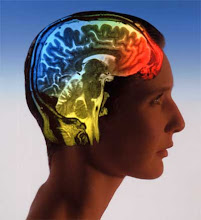A question which arose from todays revision class:
What is the difference between 'factor' & 'information-processing' models of intelligence? Which group does Gardiner's model go in?
Bear in mind that people do not universally agree what intelligence is. Some people decided that the best approach would be to give people ability tests, and use statistics to see what patterns emerge. The theory can then built from that information. This is the case with factor models. The main statistical test used is Spearman's 'factor analysis', and the term factor models derives from this test.
One problem with this is that it can depend on what tests you give to your research participants. Spearman (1904) found a single 'g' (general) factor, but Thurstone (1938) found 7 factors. Also, it only shows that certain factors exist, it doesn't tell us anything about how these processes work, or how performance could be improved.
Information-processing (or 'cognitive') models are not based on testing - instead they make models of how people process information & solve problems.
Cognitive psychologists have looked into various abilities such as reaction time, working memory, ability to retrive words from LTM, and ability to make accurate comaprisons. Rather like models of memory that we have studied, models of intelligence in this approach are built up, and include various elements that link together.
Gardiner's model of multiple intelligences doesn't fit neatly into either group. Gardiner places a lot of emphasis on neuroscience - studies of the brain and brain damage. He is also very interested in 'savants' - profoundly retarded people who have one special ability e.g. drawing or mathematics. Many people in psychology are sceptical of Gardiner's approach, which seems to rely a lot on assumptions rather than research.
If you have to place it in a category, then call it an information-processing theory, because it has developed as part of contemporary cognitive psychology. Besides, it's definitely not a factor model, as it doesn't use ability testing or factor analysis.
Subscribe to:
Post Comments (Atom)

No comments:
Post a Comment